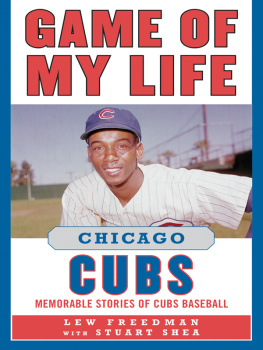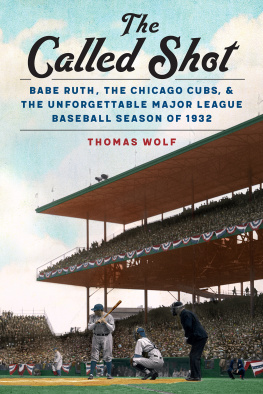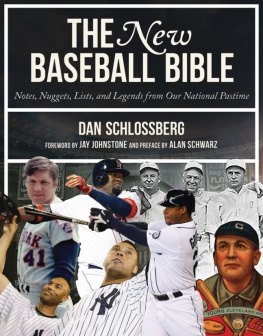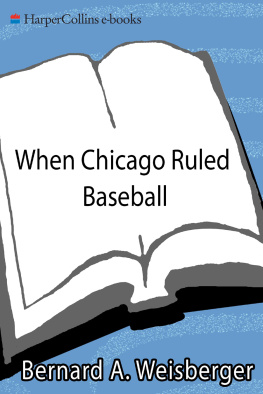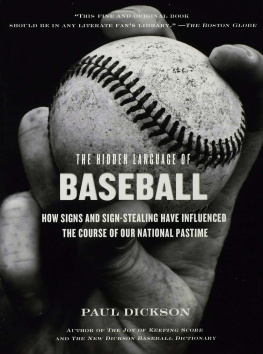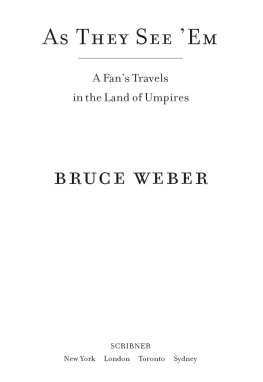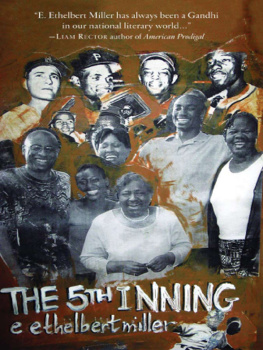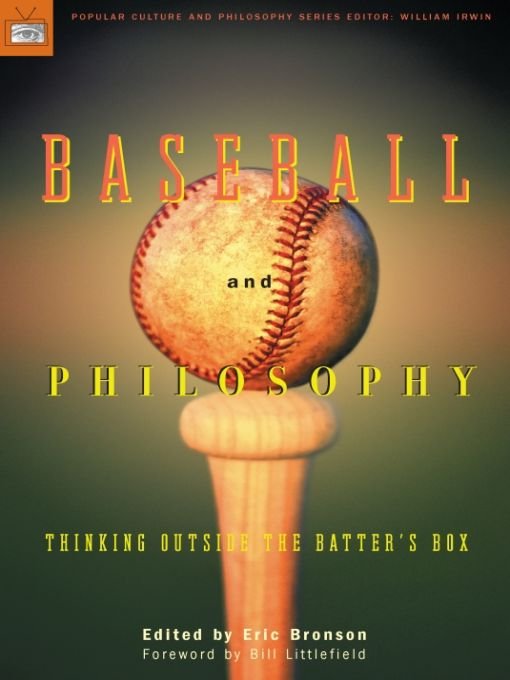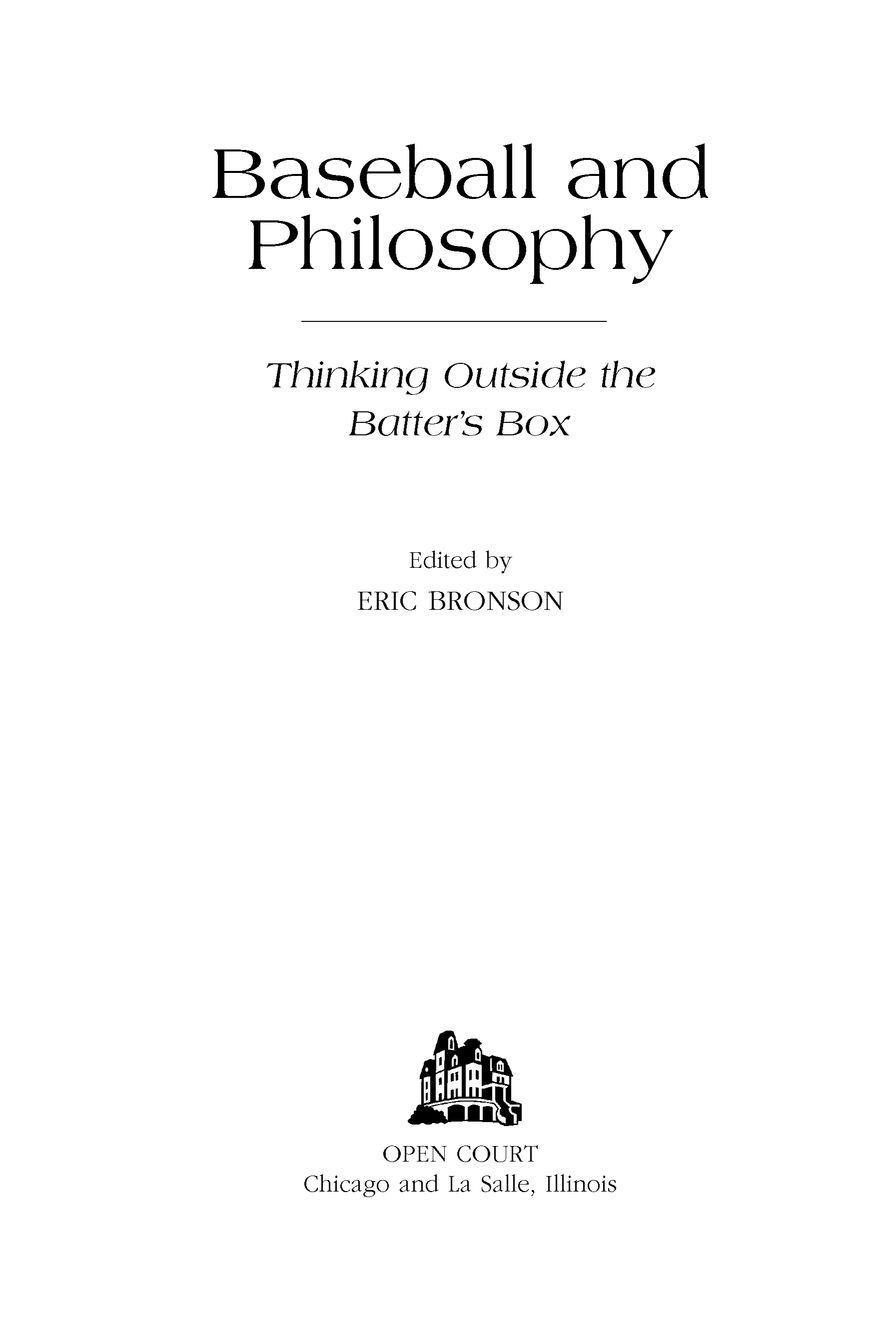Table of Contents
Popular Culture and Philosophy
Series Editor: William Irwin
VOLUME 1
Seinfeld and Philosophy: A Book about Everything and Nothing (2000)
Edited by William Irwin
VOLUME 2
The Simpsons and Philosophy: The Doh! of Homer (2001)
Edited by William Irwin, Mark T. Conard, and Aeon J. Skoble
VOLUME 3
The Matrix and Philosophy: Welcome to the Desert of the Real (2002)
Edited by William Irwin
VOLUME 4
Buffy the Vampire Slayer and Philosophy: Fear and Trembling
in Sunnydale (2003)
Edited by James B. South
VOLUME 5
The Lord of the Rings and Philosophy: One Book to Rule Them All (2003)
Edited by Gregory Bassham and Eric Bronson
VOLUME 6
Baseball and Philosophy: Thinking Outside the Batters Box (2004)
Edited by Eric Bronson
IN PREPARATION:
The Sopranos and Philosophy (2004)
Edited by Richard Greene and Peter Vernezze
Woody Allen and Philosophy (2004)
Edited by Mark T. Conard and Aeon J. Skoble
Harry Potter and Philosophy (2004)
Edited by David Baggett and Shawn Klein
To Rabstick Park, wiffle ball field of dreams
Foreword
Philosophy takes time. So does baseball.
Philosophy is sometimes strictly logical, sometimes mystical. Likewise baseball. Ted Williams made such a thorough study of the act of hitting a baseball that most witnesses regard his achievement as science. He argued (loudly and without doubt) that he had come to understand (if not invent) the only proper angle for a bat to describe as it crossed the plate. He maintained that by getting my pitch, that is, by never giving in to the pitcher who works just off the corners or beyond the upper and lower edges of the strike zone, he could essentially beat the logic of the game, which, of course, has it that good pitching will beat good hitting. On the other hand, Nomar Garciaparra, whom Ted Williams admired immoderately, is apparently convinced that he cannot hit at all if he doesnt adjust his batting gloves with precisely the same sequence of irritating, spastic, tugs before every pitch, which is as logical as not changing your socks when youre on a hitting streak.
These observations would seem to suggest that a book entitled Baseball and Philosophy describes a better coupling than, say, Pole Vaulting and Philosophy. Moreover, baseball has spawned remarkable philosophers over the decades. Consider Satchel Paige (Dont look back; something may be gaining on you); Yogi Berra (It aint over til its over), and Casey Stengel (The Mets is a very good thing. They give everybody a job. Just like the WPA). But the best argument for this book is that up and down the lineup, the philosophers involved herein are having such a good time. The achievement of this volume is like the accomplishment of a game in the perfect ballyard on City Island Park in the middle of the Susquehanna River in Harrisburg, Pennsylvania on a night with no mosquitoes. The essays in this book remind the reader that philosophy is fun, and that creatively building unlikely connections between such concerns as faith in the Cubs and faith in God can help us learn how to think. Similarly, the AA game in Harrisburg of a mild summer night reminds us that baseball is a happy invention. The game before us there is, like a simple proposition, the thing itself. Nobody in City Island Park is angry about what the players are making or how much the beer costs, let alone whether the next Major League work stoppage should be called a strike or a lockout.
This book appears at an especially appropriate time in baseballs long history. Fans can witness these days an entertaining conflict between two schools of baseball thought. In one camp sit the managers who play hunches and the old scouts, who swear they can spot the sole prospect on a high school team just by watching the players get off the team bus. In the opposing dugout are Bill James and his disciples, who have come to understand the game in terms of statistical measures far more complicated than batting average. These mathematicians rate the value of a hitter strictly in terms of the likelihood that he will somehow do something other than make an out. Unlike traditional baseball men, they do not say things like, He looks like a ball player.
Of course the lovely thing about baseball is that it resists mastery, no matter the tools employed by the player, the manager, the general manager, the owner, the mathematician... or the thinker. In that respect, too, the game is the right bailiwick for philosophers, who can argue forever about the definition of the real fan or the wonder of the rules, secure in the knowledge that the pastime will endure their needling and thrive. It is deep and easy at once, this old game. Or as the great baseball philosopher Johnny Pesky has been known to say from the end of the bench, Its such a simple game, and so hard to play.
BILL LITTLEFIELD
Bill Littlefield hosts National Public Radios Only A Game. He is co-editor of Fall Classics: The Best Writing about the World Series First 100 Years and author of the baseball novel Prospect.
Acknowledgments
Writing a book, like playing baseball, is only enjoyable if ones teammates are good, or at least likeable.
I am very thankful to the baseball gods that the authors in this book are true professionals who love what they do. For all their hard work and cheery dispositions, especially in the off season, I can do no more than tip my cap.
A special thank you goes out to Bill Irwin who gave us the green light and waved us home. Like all good coaches, he makes us play our best, and like a true friend, his faith and trust never waver. And thanks to Greg Bassham for his vast generosity, his consistent, kind words, and his genuine cigars. With Bill and Greg on the field, its always an honor to wear their uniform.
Two first ballot Hall of Famers who deserve special credit are Tim Wiles and W.C. Burdick. For their great work in Cooperstown, they should be enshrined.
To David Ramsay Steele in the front office, whose sharp vision helped us hit the curve balls, before we ever saw them coming, and to Carolyn Madia Gray, whose wit and wisdom see us through, I give a hearty high-five.
Of course, baseball is a family game, and no one can capture its spirit without a loving and supporting cast. To my parents who always stood at the dugout steps for every strikeout and every hit, the game ball is always yours. Thanks also to Team Prescott who withstood all the broken bats and errant throws with grace and love.
Standing ovations also go to Evelyn Bronson, Michael J. McGrath, William N. Irwin, John Loyd, Robert Guldner, Steve Libenson, Ray Doswell, Abigail Myers, Jimmy Murphy, Jason Klein, and of course, Betty Morris.
At Berkeley College, where I play my home games, Arthur Blumenthal and Phil Krebs help make the game fun. And finally, thanks to William Moya and my students who never lose faith, through the long practices, and all the rainy days.
Pre-Game Warm-up :
Whos on First?
Baseball has always been a thinking persons game. Just ask the wise philosophers, Abbot and Costello.
Their baseball dream team featured Who at first base, What at second base, and Why out in left field. Thats a formidable lineup when you stop and think about it. If any of us could keep track of the Whos, Whats, and Whys in our lives, our daily grind would be a whole lot easier to bear. Poor Costello, though, never could seem to get it right, and most of the time, we cant either. Who are we? What should we do? Why are we here? Throw in I Dont Know at third base and you have the foundation for some of the most perplexing philosophical discussions throughout the ages, all on the field at the same time. Can you blame Costello for not getting it straight?


